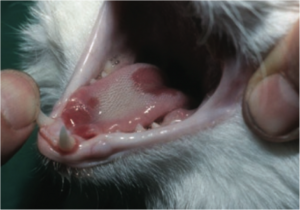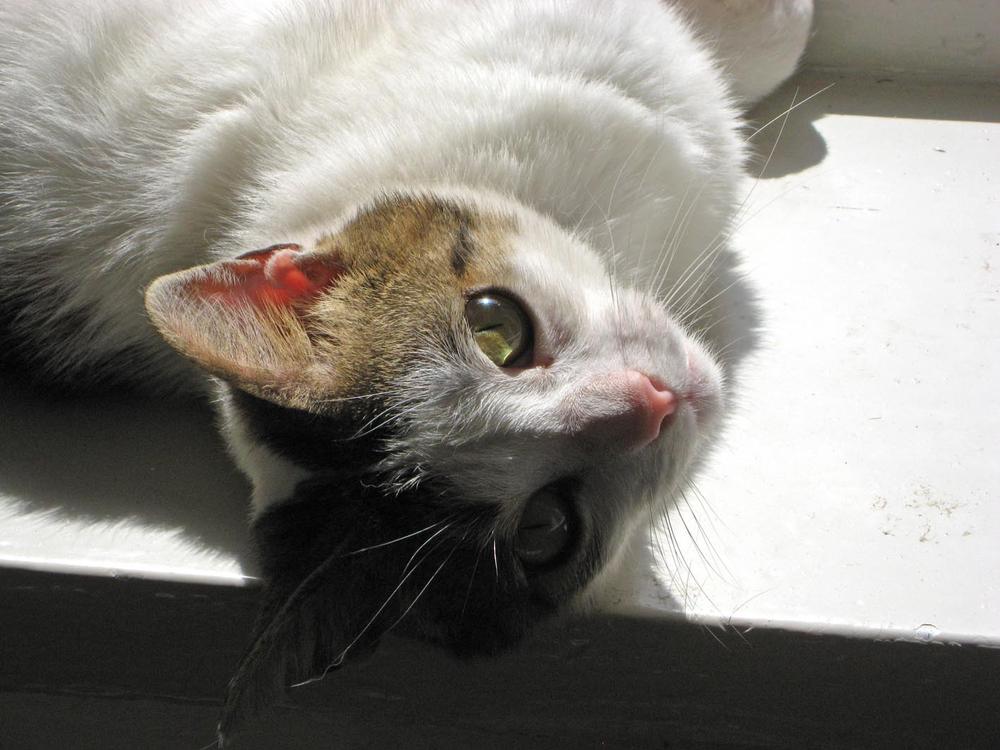viral rhinotracheitis
It is caused by a herpes virus and is transmitted from cat to cat with secretions from the eyes, nose and throat. It manifests itself with cough, high fever and loss of appetite. Severe conjunctivitis is often associated with it, which can generate ulcers in the cornea, which in the worst case can lead to blindness. The best defense is vaccination prevention.
calicivirosis

Transmission between cats occurs through saliva and feces. Again, the disease manifests itself with sneezing, chilling, fever, sneezing and nasal discharge. After some time, severe ulcers also appear on the tongue that produce excessive salivation and do not allow the cat to feed properly. It does not infect humans and the only cure is vaccination prevention.
panleukopenia
Not contagious to humans, this disease is supported by a very resistant virus in the environment, which is why it can also be transported to us. Loss of appetite, severe depression, vomiting and diarrhea are the main symptoms. The more acute forms are fatal, the subacute ones are less devastating and can be resolved. Here, too, vaccination is fundamental.
Feline viral leukemia (FeLV)

It is considered the most fatal disease for the domestic cat, it does not infect humans. The contagion between similar occurs through the exchange of saliva, with sneezing, urine and feces. The clinical symptoms are very variable and it is difficult to diagnose it. It can remain dormant for up to three years and then manifest itself as malignant tumors. Vaccination prevention is strongly recommended especially for cats that live outdoors.
Feline Infectious Peritonitis (Fip)
It mainly infects young or older cats, those with weaker immune systems. The disease manifests itself with fever, weight loss and severe dehydration, at this point the symptoms differ depending on how the disease evolves: the "wet form" causes effusions in the abdomen and lungs causing breathing difficulties and ocular problems. The "dry form", on the other hand, manifests itself differently depending on the affected organ (kidneys, liver, eyes, lymph nodes). It evolves slower than the dry form, but it is just as fatal, there is no vaccine, although a spray is being tested. It is not contagious to humans.
Acquired Feline Immunodeficiency (Fiv)
Although related to the HIV virus it does not infect humans and vice versa. The contagion occurs from bites and wounds, so it is much more frequent in males who struggle with similar. In the beginning, this disease can manifest itself with transient symptoms (diarrhea, conjunctivitis, ...) that can go unnoticed. The virus can remain dormant even for years, until, by lowering the immune defenses, then it evolves into serious pathologies involving various organs: therefore, depression, fever and diarrhea can accompany stomatitis, pneumonia, eye damage, skin problems and tumors. There is no vaccine. The contagion occurs through permanent wounds. An infected cat is unlikely to become infected.